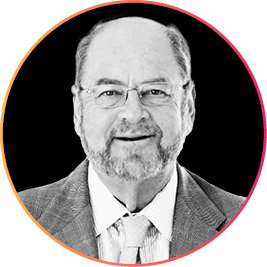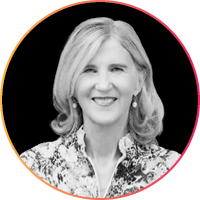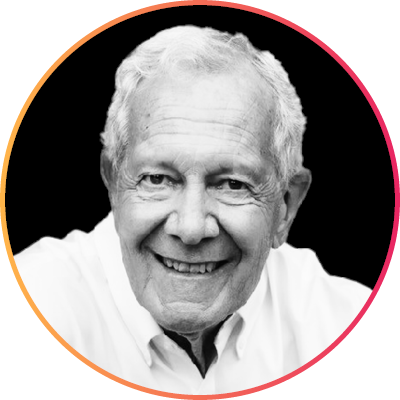- Membership & Community
-
Publications & News
- Physiology Journals
-
Newsroom
-
The Physiologist Magazine
- 2019
- 2020
- 2021
- 2022
- 2023
- 2024
-
In Depth
- In Depth—The Bear Necessities
- In Depth: Understanding Circadian Rhythms
- In Depth: Understanding Data
- In Depth: Exercise Physiology: Take Your Medicine at the Gym
- In Depth: Neurodegenerative Disorders
- Imaging Methods Unveil the Invisible
- Rewiring the Brain: Breakthroughs in Neural Therapy
- What’s Coming Next for GLP-1 and Metabolic Disease Treatment
- Understanding the Effects of Maternal Exercise
- How Muscles May Hold Cues to Better Sleep
- The Science Behind Breathwork and Mental Health
- How Science is Reframing Aging and Disease
-
Mentoring Forum
- Net Worth
- Take Care
- You … In Charge
- Work. It. Out.
- Working Off-site
- Location, Location, Location?
- Student Support
- Progressing to Postdoc
- Relationship Building
- Let’s Get It Started
- What Do We Value?
- It’s a Postdoc Life
- Coronavirus Contributions
- Creative Communications
- Selection Process
- Conference Connections
- Postdoc Appreciation
- Research Rewards
- Focus on Teaching
- Industry Insights
- Balance Beam
- Post Postdoc
- If You Build It
- Talk It Through
- Forward Bound
- I’ve Earned My PhD. Now What?
- University Life
- Tips for Trainees
- Time Travel
- Prepare Now for the Career You Want
- Landing a Postdoctoral Researcher Position
- Becoming a Physician-Scientist
- Mastering the Art of Science Communication
- Setting Yourself Up for Success in the Lab
- From Postdoc to Professor: Key Strategies for Success
- How to Stay Motivated in Challenging Times
- Staying Motivated Throughout Your Science Career
- Managing Stress and Workload During Your PhD
- Stay Passionate About Your Physiology Career
- Advice for Science Trainees in Uncertain Times
-
Policy IQ
- Policy IQ—2023 in Review: How APS Advocated on Behalf of Physiologists
- Policy IQ—Supporting Equitable Research
- NIH's Road Map to a Better Postdoc Experience
- The Career Path to Science Advocacy
- Culture of Safety: Stopping Sexual Misconduct
- Physiologists Return to Capitol Hill
- Tips for Scientists to Communicate about Animal Research
- Science Advocacy in a New Political Landscape
- Tips for Making the Call to Congress
- Science Spending Is an Investment
- Advocacy Up Close and Personal
- How Animal Research Advances Physiology and Medicine
- 5 Ways Physiologists Advocated for Science in a Challenging Year
-
Publish with Polish
- Publish with Polish
- The Layers of Open Science
- Take Your Content From Meeting to Manuscript
- APS Journals to Highlight Women’s Health Research
- What Subscribe to Open Means for APS Members
- The 5 Pillars of Publish with Purpose
- 3 Types of Metadata Researchers Should Know About
- Navigating Open Access and New Licensing Options
- Journal Manuscript Prep Made Easy
- How to Navigate Public Access Requirements
- Ensuring Public Trust in Publishing
- Improve Your Scientific Figures With APS and BioRender
- How APS Subscribe to Open Supports Accessible Research
-
Under the Microscope
- Equine Inspiration
- Inquiring Minds
- The Power of Teaching
- The Love of Physiology
- Understanding Women's Physiology Across the Lifespan
- Studying Human Health in Extreme Environments
- Advancing Kidney Health and Physiology Research
- How Gut Microbes Shape Blood Pressure and Drug Response
- Battling Malaria
- Exploring the Microbiome
- From Physics to Physiology: A Scientist's Unconventional Journey
- Finding Meaning in Exercise Physiology and Healthy Aging
- Mentoring Q&A
- Evolution
- Baseline by Scott Steen, CAE, FASAE
- 2025
- 2026
- Find Us on Social Media
-
The Physiologist Magazine
-
Professional Development
-
Meetings & Events
-
American Physiology Summit
- #APS2024 Overview
- Abstracts
- Awards at the Summit
- Award Lectures
- Career Networking Lunch Form
- Dates and Deadlines
- Advocate for Health Research Funding
- Hotel Information
- International Travel Information for Summit Attendees
- Industry Partners
- Mobile App
- NIH and NSF Program Officer Panel Discussion Form
- Physical Poster Information
- American Physiology Summit PhysioHub
- Pre-Summit Events
- Registration
- Section & Group Banquet Tickets
- Social Events
- Speaker Audiovisual Instructions
- Summit FAQs
- Travel & Transportation
- Undergraduate Program Book
- Liability Waiver
- Industry Partners
- Joseph Erlanger: Pioneering Nerve Research and APS Leadership
- 2023
- 2024
- Scientific Integrity Policy
- Exhibitor Registration Form
- Keynote Speaker Tracy L. Bale, PhD
- Keynote Speaker Jennifer Lippincott-Schwartz, PhD
- Career Day Workshop: Own Your Path, Positioning for the Career That Fits You
- From Concept to Classroom
- New Trends in Sex Differences and Women’s Health Research
- Control of Renal Function in Health and Disease
- Comparative Physiology Conference
- Webinars
- Future APS Conferences
- Conference Policies
-
American Physiology Summit
- APS Awards
-
Career & Professional Development
-
Career Gateway
-
Resources
- Transcript—Leading Through Conflict and Difficult Conversations
- Transcript—Managing Conflict with Colleagues
- Transcript—Leading a Team Through Conflict
- Transcript—Providing Difficult Feedback
- Transcript—Team Dynamics and Culture Primer
- Transcript—Building a Team
- Transcript—Leading a Team Assigned to You
- Transcript—Creating a Team Culture
-
Resources
- Career Navigator
- Center for Physiology Education
- Virtual Courses
- Physiology Job Board
- APS Graduate Physiology & Biomedical Science Catalog
-
Career Gateway
-
Meetings & Events
-
Advocacy & Resources
- Science Policy
-
Resources
- Researcher Resources
- Educator Resources
- Trainee Resources
- Student Resources
-
APS Graduate Physiology & Biomedical Science Catalog
- Des Moines University
- George Washington University
- Michigan State University
- New York Medical College
- Nova Southeastern University
- Pennsylvania State University
- Texas A&M University
- Texas A&M University Medical Physiology
- University of Alabama at Birmingham
- University at Buffalo
- University of Colorado
- University of Michigan
- University of Minnesota
- University of Missouri-Pathobiology and Integrative Biomedical Sciences
- University of Nebraska Medical Center
- University of Nevada, Reno
- University of South Carolina School of Medicine
- University of Tennessee Health Science Center (UTHSC)
- University of Texas Health Science Center
- Virginia Commonwealth University
- Wayne State University
- Physiology Department Catalog Submission Form
- Boston University
- Career Gateway
- Major Initiatives
- About APS
Conference program includes game-changer sessions highlighting vital issues affecting health
Rockville, Md. (April 3, 2025)—Nobel Laureate James Rothman, PhD; Holly A. Ingraham, PhD, FASEB’s 2024 Lifetime Achievement awardee; and George A. Brooks, PhD, FAPS, the American Physiological Society’s (APS) 2025 Walter Cannon Award recipient, are among the highlighted speakers who will attend the American Physiology Summit. The Summit, APS’ flagship annual meeting, will be held April 24–27 in Baltimore.
 Nobel Laureate James Rothman, PhD, is the Sterling Professor of Cell Biology at Yale University. He received the Nobel Prize in Physiology or Medicine in 2013 for his groundbreaking research on vesicle trafficking. Rothman will give the Summit’s opening keynote address, “New Insights into Basic Mechanisms of Synaptic Neurotransmission,” at 4:15 p.m. EDT, on April 24, at the Baltimore Convention Center. Read more about Rothman.
Nobel Laureate James Rothman, PhD, is the Sterling Professor of Cell Biology at Yale University. He received the Nobel Prize in Physiology or Medicine in 2013 for his groundbreaking research on vesicle trafficking. Rothman will give the Summit’s opening keynote address, “New Insights into Basic Mechanisms of Synaptic Neurotransmission,” at 4:15 p.m. EDT, on April 24, at the Baltimore Convention Center. Read more about Rothman.
 Holly A. Ingraham, PhD, is the Herzstein Endowed Professor of Molecular Pharmacology at the University of California, San Francisco. She is the 2024 recipient of the Federation of American Societies for Experimental Biology (FASEB) Excellence in Science Lifetime Achievement Award, which recognizes her pioneering work on sex differences and hormone-responsive nodes in the brain and peripheral tissues that maintain metabolic, skeletal, and gut physiology in females. One of the Summit’s closing keynote speakers, Ingraham will speak on “How Brain-body Crosstalk Sculpts Facets of Female Physiology” on April 27. Read more about Ingraham.
Holly A. Ingraham, PhD, is the Herzstein Endowed Professor of Molecular Pharmacology at the University of California, San Francisco. She is the 2024 recipient of the Federation of American Societies for Experimental Biology (FASEB) Excellence in Science Lifetime Achievement Award, which recognizes her pioneering work on sex differences and hormone-responsive nodes in the brain and peripheral tissues that maintain metabolic, skeletal, and gut physiology in females. One of the Summit’s closing keynote speakers, Ingraham will speak on “How Brain-body Crosstalk Sculpts Facets of Female Physiology” on April 27. Read more about Ingraham.
 George A. Brooks, PhD, FAPS, is a professor in the Department of Integrative Biology at the University of California, Berkley, where his extensive body of research focuses on understanding of the pathways and controls of how lactate is produced and cleared before, during and after exercise. Brooks is the Society’s 2025 Physiology in Perspective Walter B. Cannon Award recipient, which recognizes a lifetime of dedication to advancing physiology. He will give the closing keynote presentation “Lactate Shuttles and Carbohydrate Carbon Flow” on April 27. Read more about Brooks.
George A. Brooks, PhD, FAPS, is a professor in the Department of Integrative Biology at the University of California, Berkley, where his extensive body of research focuses on understanding of the pathways and controls of how lactate is produced and cleared before, during and after exercise. Brooks is the Society’s 2025 Physiology in Perspective Walter B. Cannon Award recipient, which recognizes a lifetime of dedication to advancing physiology. He will give the closing keynote presentation “Lactate Shuttles and Carbohydrate Carbon Flow” on April 27. Read more about Brooks.
The Summit’s scientific program will also feature eight game-changer sessions highlighting some of the biggest topics affecting life and health today. Top scientists from around the world will discuss these vital issues.
The game-changer sessions are:
The Risks and Rewards of GLP-1 Agonists Beyond Diabetes
Experts will discuss how GLP-1 agonists—originally designed to combat diabetes and obesity—are now being investigated for their potential to improve cardiovascular function and reduce opioid addiction.
Breakthroughs in Xenotransplantation
This session will explore recent advancements and address significant challenges in xenotransplantation—the use of organs from non-human animals, primarily pigs—as a potential solution to the organ shortage crisis.
Bioelectric Medicine: Neural Modulation of Central and Peripheral Function
Scientists will highlight state-of-the art research using electrical stimulation of the vagus nerve or spinal cord to modulate central and peripheral organ function, and behavior in health and disease.
Unlocking Longevity through Advances in Nutrition, Exercise and Epigenetics
This session will highlight new and emerging areas in nutrition, exercise and epigenetics and their influence on the physiology of longevity.
Unraveling the Link between Maternal Behaviors and Offspring Disease
Researchers will present new findings from basic and clinical research that show how maternal behaviors may affect health outcomes in offspring.
Circadian Rhythm's Impact on Sleep and Health
Scientists will discuss how sleep and circadian rhythms interact to influence physiological health, homeostasis and human disease.
Discoveries at the Intersection of Inflammation and Immunology
Talks will delve into the cutting-edge intersections of ecoimmunology, the microbiome and immune cell membrane physiology.
The Science Behind Breathwork and Why it Matters
Experts in the field of respiration will explore the mechanisms through which controlled breathing (breathwork) reduces anxiety and inflammation.
View the Summit’s program by day for preconference and session highlights.
NOTE TO JOURNALISTS: For more information, please contact APS Media Relations or call 301.634.7314. Find research highlights in the APS Newsroom.
Physiology is a broad area of scientific inquiry that focuses on how molecules, cells, tissues and organs function in health and disease. The American Physiological Society connects a global, multidisciplinary community of more than 10,000 biomedical scientists and educators as part of its mission to advance scientific discovery, understand life and improve health. The Society drives collaboration and spotlights scientific discoveries through its 16 scholarly journals and programming that support researchers and educators in their work.
Related Content
- APS Selects JPA Health to Lead Strategic Communications Campaign Elevating Physiology’s Vital Role
- Find Us on Social Media
- Erlanger Family Gifts Renowned Physiologist’s Nobel Medal to APS
- American Physiological Society Launches National Campaign to Champion Physiology’s Impact on Biomedical Discovery
- Regular Exercise May Help Prevent Fatty Liver Disease Through Bile Acid Metabolism
- Shulman, Stanhewicz Receive Prestigious American Physiological Society Awards
- Planning to Hit the Bars? Be Sure to Hit the Gym First
 Media Inquiries
Media Inquiries
Contact the Communications Department to:
- Interview a scientific expert.
- Request a study or journal article.
- Get background and resources on physiology.
Email communications@physiology.org or call 301.634.7314.

